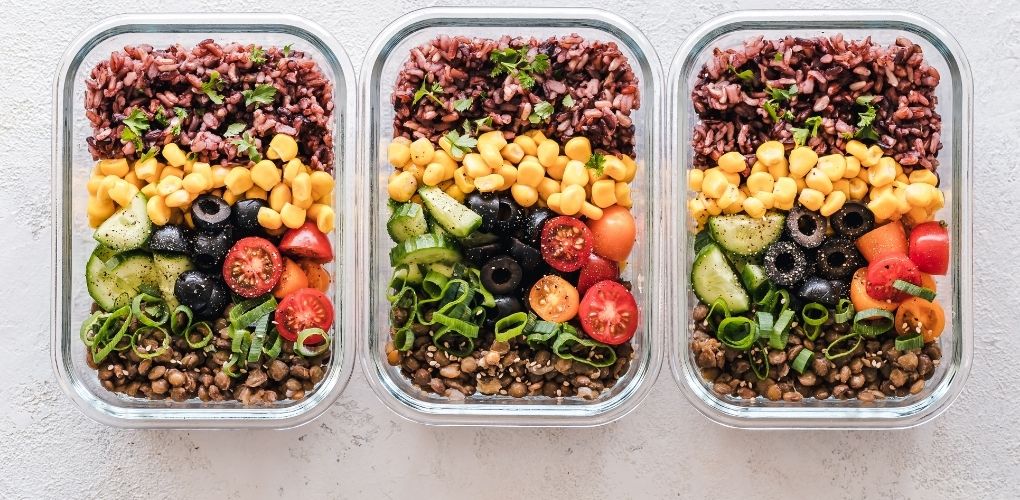
There are many studies that show the dangers of eating too much sodium. A person's sodium intake is directly related to their risk of developing hypertension and cardiovascular disease. Limiting salty snacks and reducing salt content in meals are two ways to lower sodium intake. Reduce your intake of salty snacks and limit intake of fast food. Here are some tips to help you reduce your sodium intake.
Your water retention will be increased by increasing the sodium content in your bloodstream. This causes your bloodstream to expand, and it will expand. Blood vessels that are too saturated with sodium can stretch and build up plaque, which makes them vulnerable to heart disease. Also, excessive sodium can cause you to feel bloated. Over-salinization can have serious consequences for your health.

Too much sodium is bad for your health. Your body needs a certain amount of sodium to function properly, but too much can cause health problems. Research has shown that high sodium diets are associated with higher blood pressure risk. While sodium is essential for nerve function and muscle function as well as the regulation of body fluids, it is better to limit its intake. Your daily intake should not exceed two thousand milligrams.
Too much sodium can cause heart problems and brain damage. High sodium diets in the United States are associated with increased risk for developing cardiovascular disease. The Centers for Disease Control and Prevention recommend Americans limit their sodium intake to 1,500 mg per day. The average person should consume less than 2 000 mg of sodium per day. Nonetheless, there are some foods higher in sodium than others.
It is important that sodium intake does not affect the cardiovascular system. It can actually have many health benefits. People with high blood pressure need to limit their sodium intake at 2,000 mg/day. A lower blood pressure is another benefit. Additionally, lowering salt intake can reduce your risk of developing cardiovascular disease. This is just the beginning. You must reduce sodium intake if you want to reap the health benefits of a healthy lifestyle.

Over-consumption of sodium continues to lead to more deaths. People with high blood pressure or heart disease are more likely to be exposed to high amounts of sodium. By reducing sodium intake, you can reduce the risk of heart problems. You should avoid salty foods as well as processed foods and salty meals. Canning vegetables and legumes, for example, should be rinsed prior to consumption. You can rinse your legumes and vegetables first if you don't want to wash them.
FAQ
Can I consume alcohol while working out?
Yes. Alcohol can increase energy expenditure, speed up healing time, and reduce soreness.
It also increases insulin sensitivity. This makes it easier and faster to absorb glucose.
Alcohol can cause dehydration. This can slow down your metabolism. It can also decrease testosterone production, which can affect muscle-building ability.
This is why women shouldn't have alcoholic drinks before exercising. Women who drink heavily should wait at least 24 hours between drinking and working out.
It is important that women who are nursing avoid alcohol.
Men should drink only one glass of alcohol per day.
What is the best workout order?
It all depends on what you're looking for. To build muscle mass, you should first lift heavy weights. Then move into cardio. You can then go to strength training if your goal is to lose weight.
Start with cardio if you only want to lose fat. Add strength training to your workouts.
Cardio is the best way to build muscle mass.
It is important to eat before going to work out. This will fuel you muscles better, which will make it work harder. It will also make you feel more energetic during your workouts.
How many calories do I need to eat each day?
This varies from person to person. On average, 2000 to 2500 calories are consumed per day. It is important to consider your lifestyle and determine how many calories you'll need.
Which workout is the most effective for men
The answer depends on what you are looking for. If you want to lose weight, cardio workouts are great because they burn calories faster than strength training exercises.
On the other hand, if you just want to build muscle mass, then strength training is better since it increases lean body mass.
Both types have been proven to have benefits for your overall well-being.
I recommend HIIT, or sprint interval training, if you want fast results. This type helps you burn fat quickly, by increasing your metabolism. It can also increase your endurance, so that you can train even when fatigued.
Which dietary supplements are good for weight loss.
Exercise and diet are key to losing weight. Some people find certain supplements helpful.
Many studies show that omega-3s may help you lose weight. Omega-3s are essential fats which are crucial for brain function. They are found in fish like salmon, tuna, shrimp and cod liver oil.
Some research has shown that green tea could be helpful in weight loss. Green tea is rich in catechins, antioxidants which may boost metabolism and aid weight loss.
Is it possible to go to the gym every day of the week?
You can go to the gym seven times a week, but not at once. This means you need to choose a time when you feel rested and not too tired.
This will keep you motivated and provide energy for other activities.
You must also ensure that you eat enough during these times. This will ensure that you aren't tired and slow when you go to the gym.
You must ensure that you don't have any other competing demands on your time. If you have children, it is a good idea to avoid going to school on the evenings as they can distract from your workout.
Do I need to exercise every morning?
No! Do at least 30 minutes of moderate intensity physical activity five days a week. That could mean walking fast enough for you to get slightly out of breath and biking hard enough for you to sweat.
Statistics
- Get free shipping and 25% off today. (healthline.com)
- By John Thompson Take a whopping 38% off a set of PowerBlock Pros. (menshealth.com)
- Are You One of the 20% of Guys (mh.co.za)
- Cardmembers earn 5% Back at Amazon.com with a Prime Credit Card. (amazon.com)
- Candidates and applicants must pass all four tests at 70% (minimum level) to graduate from Basic Deputy U.S. Marshal (BDUSM) Training. (usmarshals.gov)
External Links
How To
How do I lose weight while working out?
Exercise helps you lose calories by increasing your metabolism and oxygen intake.
If you exercise with moderate intensity, you can safely lose weight.
These tips can help you to burn fat while training:
-
Cardio exercises like walking, running (or jogging), swimming, cycling, running, and/or elliptical training are all good options.
-
Exercise for 30 minutes three times per week.
-
Strength training is a great way to lose weight.
-
Avoid intense exercise. You can build muscle without having to lose muscle tissue.
-
During exercise, drink plenty of water. Water helps flush out toxins and keep your body properly hydrated.
-
After exercising, consume low-fat protein smoothies. Protein shakes help repair muscles and boosts energy.
-
Take smaller meals throughout each day to avoid feeling hungry.
-
Don't skip breakfast! Skipping breakfast can make you tired and sluggish.
-
Mental health is important. Stressful situations may slow down your metabolism.
-
Keep a positive attitude. Research shows that overweight people gain more weight if they believe they are overweight than those who believe they look good.
-
Get enough rest. You will have a harder time losing weight if you do not get enough sleep.
-
Always be active. Move around at least once an hour.
-
Maintain a healthy diet. Eat right to feel satisfied and full for longer.
-
Find relaxation techniques. Relaxing doesn't mean your body releases stress hormones which cause muscle tissue to be destroyed.
A balanced diet includes all essential nutrients needed for growth and development.
Eat six small meals each day instead of three large ones. This allows your body time to digest what you've eaten.
To maintain strong bones, you need to consume 500 mg of calcium each day. Calcium can also be found in milk products, yogurt, fortified Soy beverages, orange Juice, cereals and bread.
Calcium is found in leafy vegetables, beans and tofu, as well nuts, seeds and cheese.
Your body needs vitamin D to absorb calcium. Vitamin D is found in certain fortified foods, such as egg yolk and fatty fish.
Vitamin E is vital for your skin's health. It can be found as a vegetable oil, wheat germ, peanuts or almonds.
Your body requires zinc for normal immune function and wound healing. Zinc can be found as a mineral in oysters.
Zinc deficiencies can lead to fatigue, decreased appetite, depression, and reduced immunity.
Sugar intake can lead to insulin resistance which causes blood glucose levels to rise. Insulin resistance leads to weight gain.
Insulin resistance develops when there are high levels of free radicals in the bloodstream. Free radicals refer to molecules that contain unpaired electrons. They can damage cell membranes and other body parts.
Most free radicals come from pesticides herbicides, food additives, preservatives smoking, radiation, chemical in cosmetics, lotions and household cleaning supplies.
Free radical damage can lead to cancer, heart disease, diabetes, arthritis, asthma, and aging.
Antioxidants are essential for preventing free radical damage. Antioxidants protect against oxidative damage.
Vitamin C (found on citrus fruits), Beta carotene, found in carrots and sweet potatoes, spinach and broccoli, cantaloupe (found in tomatoes, mangoes and peppers), and Vitamin E (found nuts, olive oil and avocados).
Selenium, copper and manganese are all antioxidant nutrients.
Selenium protects cells from free radical damage. Selenium may be found in Brazil nuts as well tuna, liver and kidneys. It can also be found on shrimp, cod, turkey, beef lamb, pork, chicken, and other foods.
Copper protects the brain, eyes, lungs, and red blood cells. Copper can be found in meat, shellfish, meat, and organ meats.
Manganese forms an essential part of bone structure. Manganese can also be found in oatmeal, brown rice, spinach and bananas.
Zinc is important for healthy growth, reproduction, and wound-healing. Zn can be found in lean cuts, white fish, poultry, eggs, and other foods.